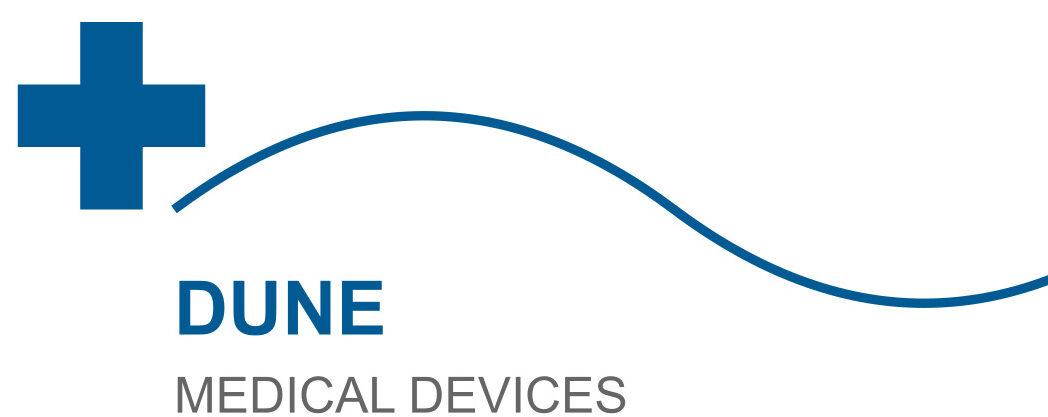What is the Best Medical Device Business to Start? Profitable Ideas for Entrepreneurs
The medical device industry is a goldmine for entrepreneurs looking to build a lucrative and impactful business. With global healthcare spending projected to reach $10 trillion by 2025, there’s never been a better time to enter this high-growth sector. Whether you’re a startup founder or an established business owner, launching a medical device business can be your ticket to financial success while making a real difference in people’s lives.
In this comprehensive guide, we’ll explore the most profitable medical device business ideas, analyze market trends, and provide actionable steps to help you launch your venture successfully. Dune Medical Devices Inc has helped countless entrepreneurs like you transform innovative ideas into thriving businesses.
Why Start a Medical Device Business?
The healthcare industry offers some of the most stable and recession-proof business opportunities available today. Here’s why smart entrepreneurs are flocking to the medical device sector:
1. Explosive Market Growth
The global medical device market is expected to grow from $456.9 billion in 2020 to $657.98 billion by 2028, at a CAGR of 4.6%. This consistent growth creates endless opportunities for innovative entrepreneurs.
2. High Profit Margins
Medical devices typically command profit margins between 30-70%, significantly higher than most other industries. Premium specialized devices can yield even higher returns.
3. Recession-Resistant Demand
Healthcare needs don’t disappear during economic downturns. In fact, the COVID-19 pandemic demonstrated how medical device demand can surge during crises.
4. Favorable Regulatory Environment
While FDA approval processes exist, the 510(k) clearance pathway allows many devices to reach market faster than pharmaceuticals.
Top 5 Most Profitable Medical Device Business Ideas
After analyzing market trends and consulting with industry experts at Dune Medical Devices Inc, we’ve identified these high-potential opportunities:
1. Wearable Health Monitoring Devices
The wearable medical device market is projected to reach $195 billion by 2027. These devices monitor vital signs like heart rate, blood pressure, and glucose levels.
- Startup cost: $50,000-$500,000
- Profit potential: 40-60% margins
- Example products: ECG monitors, smart patches, continuous glucose monitors
2. Telemedicine Equipment
The telemedicine market will hit $396 billion by 2027. Essential equipment includes:
- Digital stethoscopes ($200-$500 retail)
- High-definition examination cameras ($1,000-$5,000)
- Remote patient monitoring systems
3. Home Healthcare Devices
With aging populations worldwide, home healthcare devices are in high demand:
| Device | Market Size | Retail Price |
|---|---|---|
| Portable oxygen concentrators | $3.2 billion | $1,500-$3,000 |
| CPAP machines | $5.8 billion | $400-$1,200 |
| Home dialysis equipment | $2.1 billion | $5,000-$15,000 |
4. AI-Powered Diagnostic Tools
Artificial intelligence is revolutionizing medical diagnostics. The AI healthcare market will reach $45.2 billion by 2026.
5. Specialty Surgical Instruments
Custom surgical tools for niche procedures offer excellent margins (50-70%) with lower regulatory hurdles than implants.
How to Start Your Medical Device Business: 7-Step Blueprint
Follow this proven roadmap to launch your successful medical device venture:
Step 1: Identify Your Niche
Focus on solving specific problems in areas like cardiology, orthopedics, or women’s health. The more specialized, the better.
Step 2: Validate Your Concept
Conduct market research and physician interviews. Contact our experts for free consultation on your idea.
Step 3: Navigate Regulatory Requirements
Determine your FDA classification (Class I, II, or III) and plan your approval pathway.
Step 4: Develop Your Prototype
Partner with experienced medical device engineers to create your first working model.
Step 5: Secure Funding
Explore options like:
- Angel investors
- Venture capital
- Government grants
- Strategic partnerships
Step 6: Establish Manufacturing
Consider contract manufacturing to reduce startup costs while maintaining quality control.
Step 7: Launch and Scale
Develop a multi-channel sales strategy targeting hospitals, clinics, and direct-to-consumer where applicable.
Medical Device Business Models Comparison
| Model | Investment | Time to Market | Profit Potential |
|---|---|---|---|
| Original Equipment Manufacturer (OEM) | High ($500k+) | 2-5 years | Highest |
| Contract Manufacturing | Medium ($100k-$500k) | 6-18 months | High |
| Distribution/Reselling | Low ($10k-$100k) | Immediate | Medium |
Conclusion: Your Path to Medical Device Success
The medical device industry offers unparalleled opportunities for entrepreneurs willing to combine innovation with business acumen. By focusing on high-growth segments like wearables, telemedicine, and AI diagnostics, you can build a business that generates substantial wealth while improving patient outcomes.
Remember, every successful medical device company started with a single idea – yours could be next. The team at Dune Medical Devices Inc has helped hundreds of entrepreneurs navigate this rewarding industry.
Ready to take the first step? Contact us today for personalized guidance on launching your medical device business. Visit https://dunemedicaldevicesinc.com/shop-2/ for more insights and resources to accelerate your success.
FAQ Section
What’s the easiest medical device business to start?
Distribution/reselling requires the least upfront investment and regulatory hurdles. You can partner with established manufacturers and focus on sales and marketing.
How much money can I make with a medical device business?
Successful medical device entrepreneurs often achieve 7-figure incomes. Profit margins typically range from 30-70%, with some specialty devices yielding even higher returns.
Do I need a medical background to start this business?
While helpful, medical training isn’t required. Many successful founders partner with clinicians or hire medical advisors. Business acumen and problem-solving skills are more critical.
How long does it take to get FDA approval?
510(k) clearance typically takes 3-12 months. PMA approvals for high-risk devices can take 1-3 years. Our team can help you navigate the fastest pathway for your product.
Where can I get funding for my medical device startup?
Options include venture capital, angel investors, SBIR grants, and strategic partnerships. We’ve helped clients secure over $50 million in funding – contact us to discuss your specific needs.
